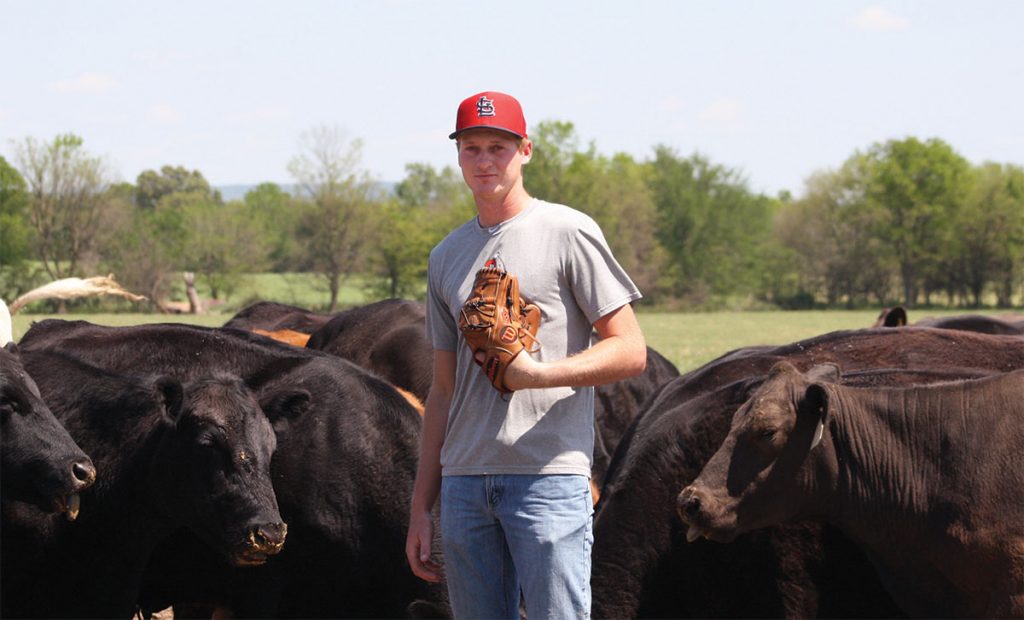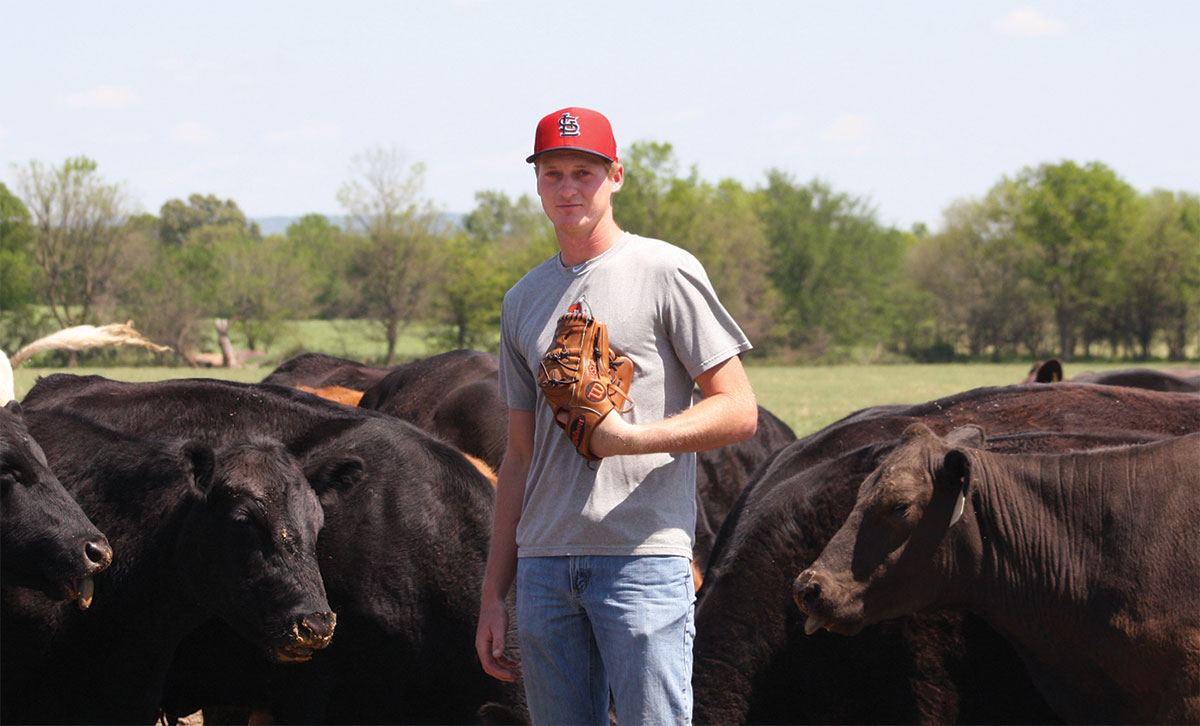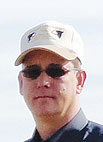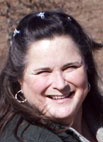
After being drafted by the Cardinals, Logan Gragg used his signing bonus to start his own farm
“As long as I am outside, I’m great,” said Logan Gragg, a 21-year-old minor-league baseball player and new farmer.
Farming and baseball have been intertwined for Logan’s entire life. At age 3, he watched his middle sister Loren play T-ball. Although she was three years older, he refused to be left out and got in the middle of it all. The result was baseball hooked him. Another of his early memories is needing to doctor a calf with his grandfather Lonnie Gray. Lonnie was driving and Logan was in the back of the Ranger so he could jump out as it passed the calf. Logan jumped out and held onto its leg when Lonnie drove back and gave the calf a shot.
“Farming and baseball have always been part of my life,” Logan recalled. “Because my dad owns Gragg Construction and works every day, I had a lot of chores as a kid, but the only things I hated were household chores like taking out the trash and sweeping.”
Logan played baseball throughout his youth and developed into an excellent pitcher for the Prairie Grove Tigers in Arkansas before playing baseball at Connors State Junior College and then transferring to Oklahoma State. At the end of his junior year, he was drafted by the St. Louis Cardinals and used part of the signing bonus for a 40-acre farm near his parents, Scott and Shauna, who lived at the family farm in Prairie Grove.
His main criteria for land was to be close to family so he could continue helping his grandmother, Mary, as well as his folks and others, especially during haying season. He also wanted to be close to his parents’ place because his mom is the main caretaker of Logan’s farm during baseball season. Logan purchased land in Lincoln last November. Soon after he also purchased a small herd of commercial cattle. Logan bought 21 commercial females and a commercial Angus bull. The rainbow herd includes 16 black Angus, two Red Angus, two Charolais and one Longhorn/Charolais cross.
“Everything just sort of fell together,” explained Logan. “I wanted early-spring calving so I could be around for most of the calving season and for breeding season because baseball season is from March 1 to Sept. 1. My calves started coming in February and most were born before I left for training camp. The irony is I barely got started before I found myself on a plane headed for home as the coronavirus invaded the lives of every American.”
The downside of the pandemic is holding off Logan’s rookie year though that is well-balanced by the fact he is able to be on his farm during the critical first year. His mother is deeply involved. Not only did she find Logan’s newly acquired land with 38 usable acres out of 40, but she also plays catch with him so he can keep his arm in shape.
One of the first things Logan did when he purchased the land was to bale 20 untouched, tall and lush acres. He harvested 119 round bales because it was so thick and subsequently fertilized with chicken litter from a local business. His plan for the future is to bale 50 to 100 bales per year.
“One of the most important things I learned from my schooling is the value of maintaining good pasture during winter in order to minimize hay consumption,” Logan said.
One of the necessary compromises of his dual life is that his bull will run with the herd year round, which will eventually disrupt the current synchronization but also spread out the work throughout the year. He feeds a little grain every day so he can easily round up the cattle when needed. He purchases Ration 3 from Cattlemen’s Feed in Colcord, Okla., and adds loose mineral for herd health.
Because of his upbringing and his education, Logan is comfortable with following his family’s vaccination protocol and using a pour-on wormer. He plans on using a rub for flies, but only if necessary. He has divided his land into two pastures which are comprised of fescue, ryegrass, Bermuda and a little natural clover. He plans on fertilizing with chicken litter, as he did last December.
Logan admits he’s very laid back, until he steps on the line to pitch. Baseball fires his competitive passion but also serves as the flame and kindling for building the farm of his dreams.
“I love baseball and will play as long as I am able,” Logan said. “When the time comes for me to retire from baseball, I plan on coming back home and beginning to take over the construction business for my dad while building my farm at the same time. If I’m outside, I’m happy and it’s as simple as that.”







